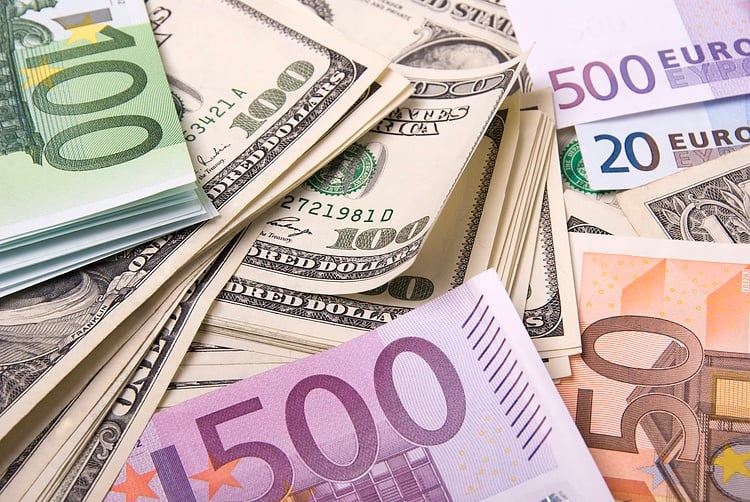Products You May Like
- EUR/USD is ending the week on a sour note and has dropped back under 1.2100.
- USD buying into the month-end is the main driver, but dovish ECB rhetoric isn’t helping.
What looked like a promising week for the euro is ending on a sour note. Having hit seven-week highs in the 1.2240s on Thursday (up more than 1.0% at the time), the currency pair has reversed sharply and is now back beneath the 1.2100 mark and at fresh lows for the week in the 1.2070s. On the day, EUR/USD is now down roughly 0.75% or about 90 pips. That means its losses on the week stand at about 0.3% or close to 40 pips.
ECB officials have dialed up the dovish rhetoric and this appears to be weighing on the euro on Friday, though month-end USD buying appears to be the main driver; risk-sensitive AUD, NZD and CAD are suffering to an even greater extent on the day versus the US dollar, down 1.9%, 1.6% and 0.9% respectively. Moreover, on the week, the euro is actually the best performing G10 currency versus the USD, with GBP in second place, down 0.4%.
Dovish ECB signals more QE incoming
From the outset of the week, the ECB has been the most dovish sounding of the major developed market central banks with regards to the recent rising in long-term government bond yields. On Monday, ECB President Christine Lagarde said the ECB will closely monitor long-term interest rates. Throughout the week, numerous other ECB officials reiterated the same line, all hinting at potential action.
But on Friday, ECB Governing Council Member Yannis Stournaras went one step further to become the first member of the ECB to an outright call for an increase to the pace at which the ECB buys government bonds in order to address what he called an “unwarranted tightening of financial conditions”. The Greek central banker said that there is no fundamental justification for a tightening of nominal bond yields at the long-end.
Euro traders will be closely watching the release of weekly Pandemic Emergency Purchase Programme data next Tuesday for any indications that the bank stepped up its bond-buying efforts this week. Signs that it has increased the pace of asset purchases could be taken as a dovish signal and hurt euro versus currencies whose central banks have taken a more sanguine view of the recent rally in bond yields (like USD and GBP).

